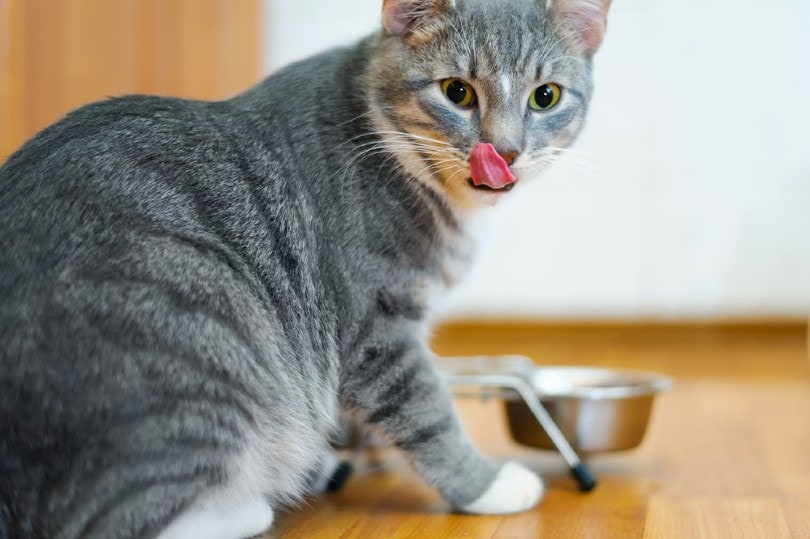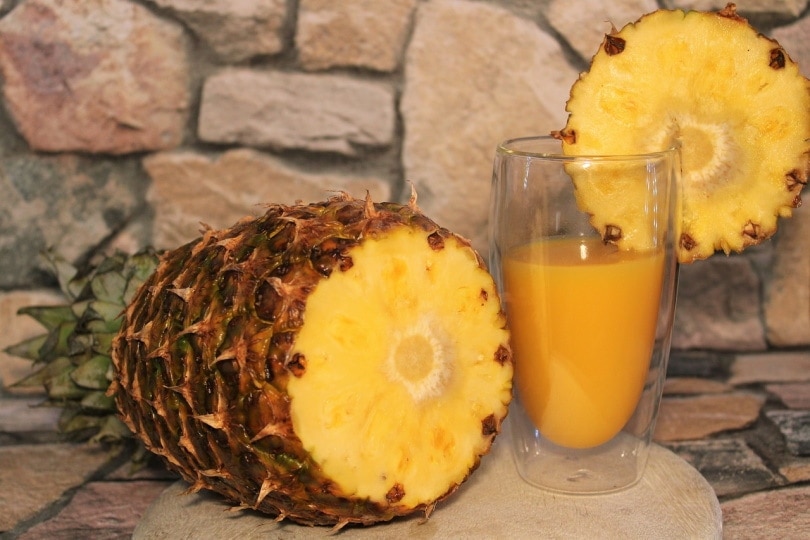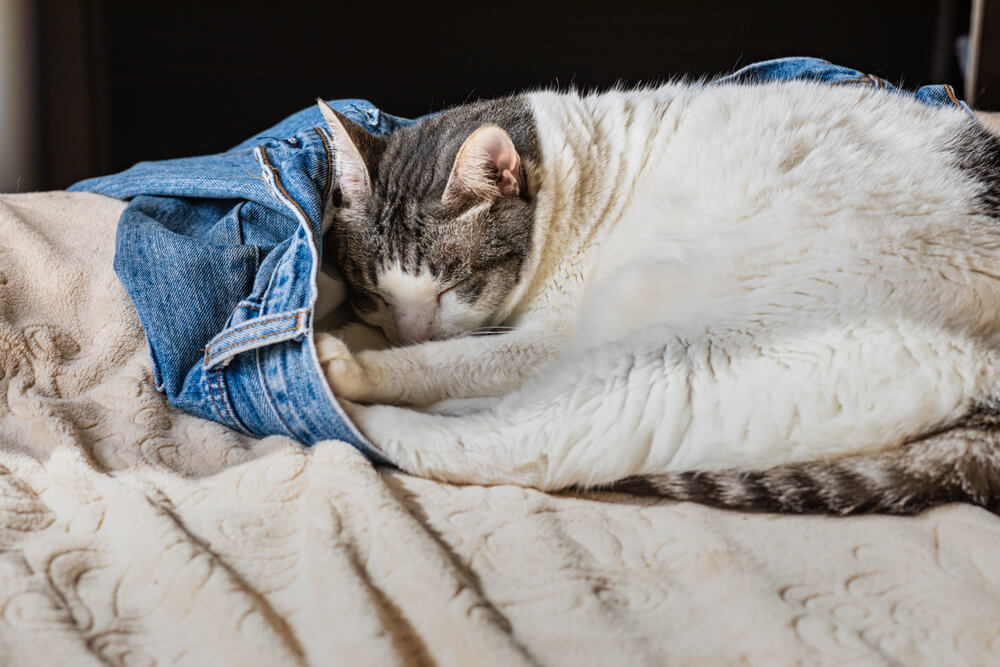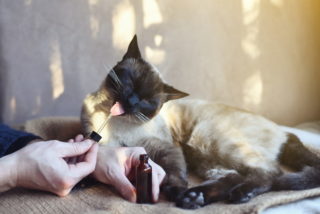Can Cats Eat Pineapple? Vet Reviewed Nutrition Facts & FAQs
Updated on

Pineapples contain many nutrients, including vitamin C, folate, and potassium, and are a source of antioxidants. Pineapples are a tasty, refreshing snack, especially on a hot summer’s day. If you’re a cat parent, you may wonder if your feline friend can enjoy this tasty treat with you. The short answer to this question is, yes, they can eat pineapple as it is not toxic for them. However, this does not mean that it provides them with the nutrition they need.
While it’s safe for your cat to eat pineapple, there are some stipulations you need to be aware of. In this article, we’ll take a closer look at the pineapple and establish when and how often your furball can enjoy this delicious fruit.
Can Cats Eat Pineapple?

We already know the short answer, which is yes, they can. However, pineapple should only be given as a very occasional treat. The reason is that pineapple is high in sugar, which is best avoided in a cat’s diet, as it provides no nutrition and can lead to weight gain and gastrointestinal issues.
Cats are obligate carnivores, meaning they eat meat. They don’t need fruits and vegetables in their daily diet, but occasional fruit in small amounts won’t hurt them. Pineapple could be a good source of hydration for cats because they don’t drink much water, and pineapple can be an occasional alternative. We do want to point out that you should never give your cat processed pineapple from a can because it contains syrup, which exponentially adds to the sugar content.
It’s safe to give fresh, natural pineapple as an occasional treat, but do not make it a habit. Also, be sure to remove the skin and any leftover spikes and cut the pineapple into very small pieces so your feline friend can digest it smoothly. It’s a good idea to monitor your cat afterward for any GI issues, such as vomiting or diarrhea, and only give one to two small pieces at a time.
Will Pineapple Juice Harm Cats?

Pineapple juice is very high in sugar content, so you should avoid giving it to your cat. Definitely stay away from processed juices as they have added artificial flavors and preservatives, and any potential benefits such as antioxidants are outweighed by the negatives of adding this ingredient. More than likely, giving pineapple juice to your cat will result in an upset tummy.
What Fruits Can Cats Not Eat?
While pineapple is non-toxic to your cat, there are other fruits that are toxic and should be avoided at all costs. Grapes and raisins are a huge no-no because they are toxic to dogs and can cause kidney failure. If this is probable in dogs, it is probable in cats, too. Orange, lime, and lemon essential oils are also considered toxic to cats and should be avoided.
What Fruits Are Safe for Cats?
Since we’ve established that cats can eat small pieces of pineapple occasionally, there are other fruits they can eat, too. Keep in mind that cats are obligate carnivores, and they don’t need fruit in their diet, so it is best if you can avoid this practice. With that said, let’s look at other fruits your furball can safely eat.
Pomegranates: This fruit is high in vitamins and fiber. If your cat is curious, you can feed a small amount.
Watermelon: If your cat isn’t a big water drinker, giving them watermelon can help hydrate them, but again, give it sparingly and keep it in small amounts. Take note to remove the seeds and rind first.
Strawberries: Strawberries are a non-toxic fruit for your feline pal, but they are high in sugar. If you give your cat this fruit, only provide it once in a while, and cut it up into small pieces beforehand.
Blueberries: Blueberries are full of antioxidants and are safe for your cat, but there’s a chance your cat won’t try it because it probably won’t be able to taste it. They can also have cranberries, raspberries, and blackberries.
Apples: Cats can safely eat apples, even with the skin, but the seeds and stem should be removed first. Apples contain some fiber and are a source of additional hydration, which can provide some benefits for your cat.
In moderation, other fruits your cat can enjoy are mangos, bananas, kiwi, cantaloupe, and cucumber. Remember to cut any fruit into small pieces and give it only sparingly.
Can Cats Taste Sweet Things?
This may surprise you, but a cat’s tongue is not able to detect sweets the way a human’s can. In general, cats can’t taste sweets. Their taste buds are keener to seek out meat since they are obligate carnivores, and they only have roughly 470 taste buds compared to 9,000 for humans. Odds are your cat is curious about the fruit more than anything since they more than likely won’t be able to taste the sweetness.
Now that you know what you can safely feed your cat, it’s just as important to find a bowl that supports their health and well-being. With whisker-friendly bowls and a wide tray to catch any spills, our Hepper NomNom Cat Bowl is our favorite option.
Final Thoughts
If your cat ever stares at you with envy when eating pineapple, now you know you can safely feed a couple of small pieces to them. But again, feed it only sparingly. Watch out for any GI issues afterward, and never include more than an occasional piece of fruit in your cat’s diet. Your tiny carnivore will be better off if you share some plain, boiled chicken.
Featured Photo Credit: dezy, Shutterstock















